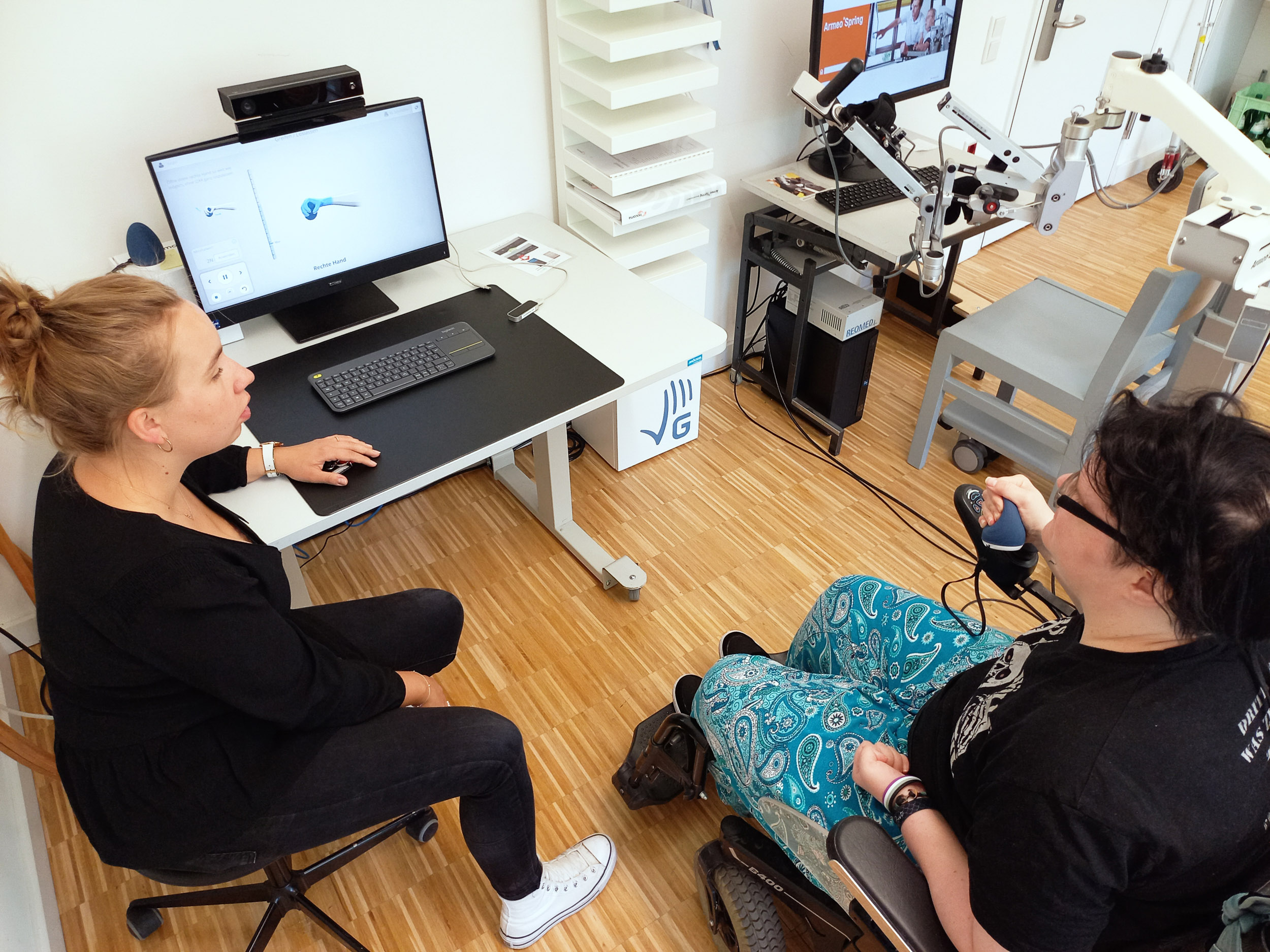
Discover how the P.A.N. Centre in Berlin uses high-frequency interval therapy and modular treatment plans to support recovery after brain injury. Learn more about personalised goals, digital tools like MindMotion Go, and interdisciplinary care.

As part of this improvement process, high-frequency interval therapy has already been implemented and selectively applied. For this reason, the institution is currently working on a project entitled “Intensive phases with modules”, which incorporates the approach of frequent, intensive intervals into a comprehensive framework.
The intensive phases are a modern therapeutic approach. Instead of integrating the various disciplines more or less simultaneously into the therapy plan, patients undergoing rehabilitation alternate between the different disciplines in phases of high and low-intensity exercise. In this way, patients undergo highly intensive, goal-directed therapeutic activities for a limited period of time, followed by a regeneration phase. The intervals are then evaluated and follow-up offers are developed.
For the intensive phases, the P.A.N. Center is developing a modular therapy programme with various modules that combine exercises, for example.
• Overall targets across all modules
• Arm initiation/expansion
• Mobility inside/outside
• Communication: aphasia
• Neglect
• Basal ADLs
The appropriate modules are selected based on the agreed targets, which are continuously updated together with the patients during the rehabilitation process. Reflecting on the results is also an important part of the discussions. This is because if the evaluation of a module shows that little progress can be made here, work is continued with a module that has a better chance of success, thus creating greater benefits for those affected.
One possible goal could be, for example, that a patient wants to relearn how to unscrew a tube of toothpaste independently with both hands. A therapy plan is then drawn up with the primary aim of initiating arm function. For four to five weeks, this module therefore mainly involves working with different components, such as mirror therapy, the motor arm studio, positioning or MindMotion Go.
If the interval in the module is successful, the successes can then be transferred to other everyday life skills, and new goals can be formulated. If there is no immediate success, compensation options can be identified.

Digital tools and methods also play a special role in the project, as many of them are designed so that patients can continue to work with them independently. This is also the case with the MindMotion Go (MMGo) software.
MMGo provides people undergoing rehabilitation with a gamified, structured and independent self-training programme. This is preceded by a detailed briefing by the therapists. Only then can the patients use the MMGo, either together with the therapy assistants or entirely independently. The advantage of self-training is that it can significantly increase the potential therapy times, leading to improved rehabilitation results.
The P.A.N. Centre for Post-Acute Neuro-rehabilitation in Berlin-Frohnau has been supporting people who have suffered severe brain damage as a result of accidents or strokes since 2015. Specifically, individuals aged 18 to 60 who might otherwise be placed in care homes due to insufficient rehabilitation options, despite having potential for recovery, are assisted on their journey towards regaining as much independence as possible in their lives. The P.A.N. Centre thus fills a gap in neurological rehabilitation in Germany (Phase E). A total of 66 places are available. The average length of stay for patients is around 18 months.
The P.A.N. Centre particularly focuses on promoting mobility, communication, independence and social integration. Neurologists, neuro-psychologists, neuro-educators, occupational therapists, physiotherapists and speech therapists work together on an interdisciplinary basis. Special emphasis is placed on the neuro-pedagogical support of the patients in the residential groups. Here, individuals undergoing rehabilitation find a temporary home where they can develop their rehabilitation potential in a safe place and interact with each other, while maintaining their personal privacy.


Related contents
Find related exciting contents in our media library.
Meet our specialists.
Are you interested in our solutions? Schedule a meeting with a Consultant to talk through your strategy and understand how TEHRA-Trainer can help you to advance rehabilitation.
You need to load content from reCAPTCHA to submit the form. Please note that doing so will share data with third-party providers.
More InformationYou are currently viewing a placeholder content from Turnstile. To access the actual content, click the button below. Please note that doing so will share data with third-party providers.
More Information